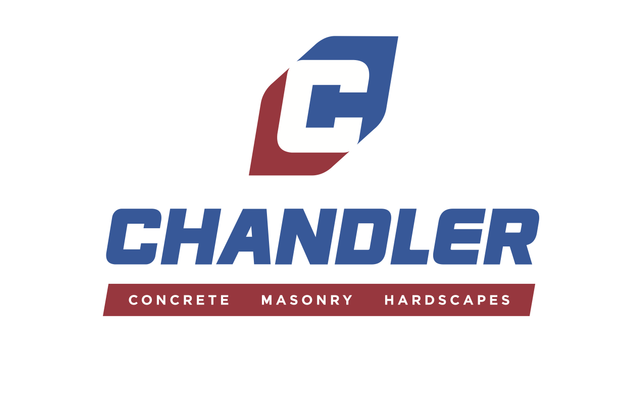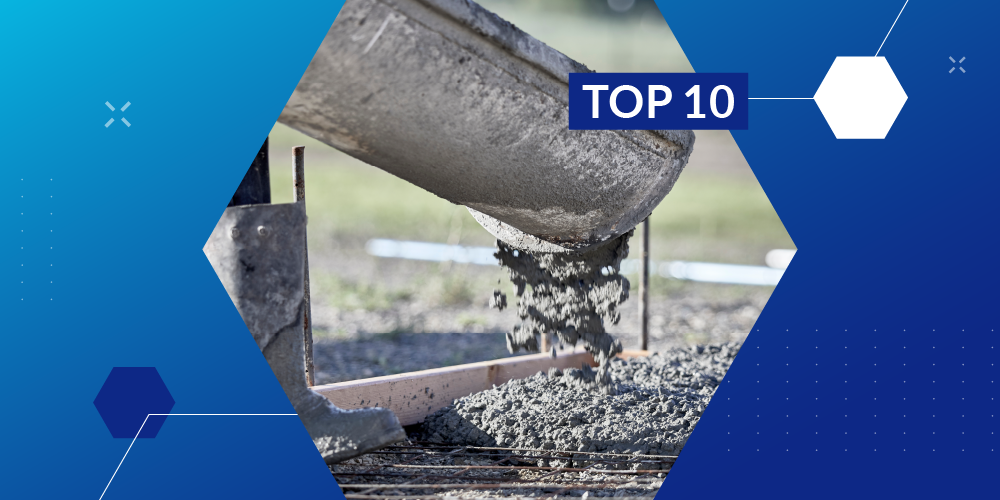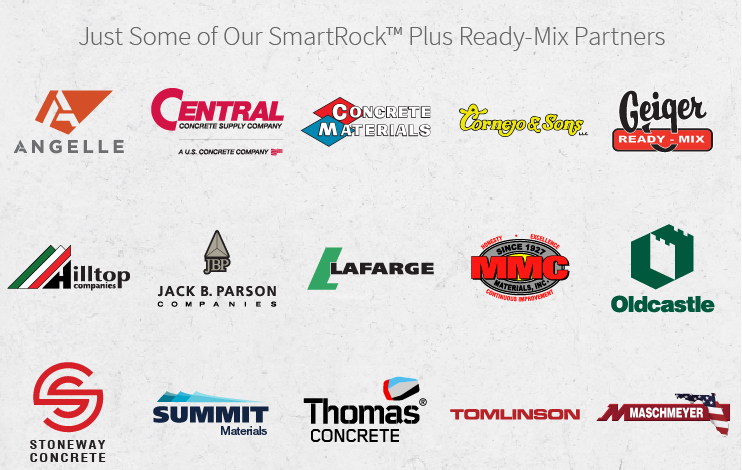The Benefits of Making Use Of Concrete Solutions for Durable Structures
Concrete solutions offer a series of benefits for creating long lasting structures. This product is renowned for its outstanding strength and durability. Its resistance to ecological aspects makes it a useful choice for numerous climates. In addition, concrete is commonly much more cost-efficient over time. As designers and builders progressively explore innovative applications, the potential of concrete in layout ends up being much more fascinating. The discussion of these benefits discloses compelling understandings right into modern building and construction practices.

Extraordinary Toughness and Resilience
Concrete is renowned for its extraordinary toughness and durability, making it a preferred product in building and construction. Concrete Companies Near Me. Its ability to withstand and stand up to heavy loads deformation under pressure is exceptional, which is why it is usually made use of for fundamental components, sustaining frameworks, and skyscrapers. The structure of concrete, that includes cement, water, and aggregates, allows it to accomplish high compressive strength, commonly going beyond that of standard building materials like wood or steel. This toughness assures structural integrity and durability, thus reducing upkeep prices gradually. In addition, concrete's toughness appears in its capability to endure numerous stress and anxieties without surrendering to tear and put on, making it suitable for diverse applications, from bridges to household homes. Generally, the robust characteristics of concrete add to its credibility as a reliable selection for constructing enduring frameworks that stand the test of time
Resistance to Environmental Aspects
Although lots of building and construction products are susceptible to environmental deterioration, concrete displays amazing resistance to different elements such as wetness, temperature changes, and chemical direct exposure. Its inherent properties make it particularly suitable for varied applications, from residential buildings to large framework projects. Concrete's reduced permeability limits water absorption, reducing the threat of damages from freeze-thaw cycles and avoiding mold growth. Furthermore, it preserves architectural honesty when exposed to severe temperature levels, making it suitable for areas with rough climates. Concrete additionally stands resilient against chemical attacks, consisting of acids and sulfates, which can weaken various other products. This resistance is even more improved by the use specialized ingredients and treatments during the blending procedure. Overall, concrete's durability in the face of environmental difficulties warranties longevity and dependability, making it a recommended option for contractors and architects aiming to create enduring structures.
Cost-Effectiveness Over Time
Cost-effectiveness in concrete solutions manifests as a long-term investment that considerably benefits frameworks. This strategy not only lessens upkeep expenditures but additionally improves power effectiveness, bring about considerable cost savings with time. Recognizing these factors is essential for evaluating the total value of sturdy concrete building and constructions.
Long-Term Investment Advantages
Purchasing resilient structures returns substantial long-term benefits that expand past preliminary expenses. Concrete services, understood for their toughness, add to a structure's durability, eventually decreasing the overall cost of ownership. By utilizing high-quality products and skilled workmanship, owners can anticipate fewer repair work and replacements in time. This integrity converts into a steady possession worth, making concrete constructions a smart financial selection in the realty market. Additionally, frameworks constructed with concrete are commonly a lot more energy-efficient, additional enhancing their cost-effectiveness. Because of this, the preliminary investment in concrete services can result in considerable financial savings and greater returns over the years, affirming the worth of choosing long lasting options for lasting building jobs.
Minimized Upkeep Costs
The longevity of concrete frameworks not only improves asset worth but likewise substantially reduces maintenance expenditures in time. Unlike products that deteriorate swiftly, concrete demonstrates outstanding durability versus different ecological elements, such as dampness, temperature changes, and bugs. This integral resilience translates to less replacements and fixings, consequently decreasing long-lasting costs. Furthermore, the reduced absorption price of concrete limits problems associated with mold and mildew, which can require costly remediation initiatives. Routine upkeep is usually decreased to simple cleaning instead of extensive repair work, additionally adding to cost-effectiveness. Because of this, residential property proprietors buying concrete solutions can anticipate a significant decrease in maintenance budget plans, making concrete an economically sound selection for sturdy frameworks.
Energy Efficiency Savings
As energy performance comes to be significantly important in building, concrete structures stand out for their capacity to boost long-lasting savings on energy bills. The thermal mass of concrete allows buildings to keep stable interior temperature levels, minimizing the requirement for home heating and cooling systems. This building decreases power consumption and converts to decrease energy costs gradually. In addition, concrete's toughness adds to fewer repair work and replacements, likewise boosting cost-effectiveness. Moreover, modern-day concrete modern technologies, such as protected concrete types and energy-efficient blends, enhance insulation and energy performance, resulting in considerable financial savings. Consequently, investing in concrete services not just profits the atmosphere through minimized power usage but additionally offers considerable financial advantages for property owners over time.
Convenience in Design and Application
Concrete's convenience in style and application permits a vast array of customizable aesthetic options, making it ideal for numerous building designs (Concrete Pasadena TX). Its ability to adapt to diverse structural applications improves its functionality in both residential and business tasks. This flexibility positions concrete as a preferred product in modern building and construction
Adjustable Visual Alternatives

Varied Structural Applications
Exploring the diverse architectural applications of concrete discloses its remarkable adaptability in layout and functionality. Concrete is used in numerous kinds, including foundations, walls, pavements, and ornamental components, allowing it to adapt to various architectural designs. Its intrinsic toughness and resilience make it appropriate for skyscrapers, bridges, and see page facilities projects. Furthermore, concrete can be built into complex forms, suiting cutting-edge designs while maintaining structural honesty. This versatility additionally reaches household applications, such as patio areas, driveways, and preserving walls. Additionally, improvements in innovation have actually brought about the growth of specialized concrete combinations, boosting efficiency in certain atmospheres. This considerable applicability underscores concrete's important function in modern building, meeting both useful and aesthetic demands properly.
Reduced Maintenance Requirements
Several homeowner appreciate the reduced maintenance requirements linked with concrete frameworks. Unlike products such as wood or steel, concrete is normally resistant to insects, rot, and rust. This durability substantially decreases the regularity and expense of repair work over time. Splits and surface wear can be easily resolved with very little effort, frequently requiring only regular sealing or resurfacing.Additionally, concrete frameworks do not need regular paint or staining, further adding to their click low maintenance. This particular is especially beneficial for business residential or commercial properties, where upkeep expenses can quickly accumulate.Furthermore, concrete is less at risk to weather-related damages, ensuring that frameworks remain undamaged no matter environmental problems. As an outcome, home proprietors can delight in the lasting advantages of concrete, including minimized labor and upkeep prices, permitting them to assign sources to other crucial areas of their buildings. Eventually, the reduced upkeep requirements of concrete make it an appealing option for constructing sturdy structures.
Eco-Friendly Structure Product
As the demand for lasting building and construction practices expands, concrete becomes an environmentally friendly structure product that offers countless environmental benefits. Its manufacturing can integrate recycled products, such as commercial byproducts and waste accumulations, which lowers the demand for virgin sources and decreases landfill waste. Additionally, concrete has the capacity to regulate temperature level, therefore boosting energy efficiency in buildings. This thermal mass impact can cause reduced power consumption for heating & cooling, additional minimizing a framework's carbon footprint.Moreover, concrete is long-lasting and durable, which implies structures require fewer repair work and remodellings with time, resulting in less resource usage generally. Developments in modern technology have actually likewise caused the advancement of low-carbon and eco-friendly concrete solutions that reduce greenhouse gas emissions throughout manufacturing. By focusing on concrete in building tasks, building contractors can contribute to a more lasting future while guaranteeing the longevity and resilience of frameworks.
Improved Property Value and Charm
A sound concrete framework especially boosts property value and allure, typically making it extra appealing to prospective purchasers or occupants. Concrete's longevity and reduced upkeep demands add significantly to long-lasting investment returns. Residences featuring high-grade concrete building and constructions tend to draw in higher offers due to their perceived security and longevity. On top of that, cosmetically pleasing concrete styles, such as stamped or colored coatings, can raise aesthetic allure, producing a positive first impression.Moreover, concrete structures commonly meet modern-day structure criteria, which can be a marketing factor for eco aware consumers. The energy effectiveness connected with well-insulated concrete additionally attract purchasers looking to minimize utility costs. In general, spending in concrete services not only strengthens the structural stability of a residential or commercial property however also enhances its marketability, leading to enhanced building worth and an affordable edge in the realty market.
Often Asked Inquiries
How much time Does It Take to Treat Concrete Correctly?
The curing procedure of concrete commonly takes regarding 28 days to accomplish perfect strength, although first setting occurs within hours. Variables like temperature level and humidity can affect the treating duration and performance significantly.
What Kinds Of Concrete Provider Are Offered?
Various sorts of concrete solutions exist, consisting of putting, developing, finishing, resurfacing, and decorative concrete. Concrete Contractors Near Me. Business may also offer repair, restoration, and installation of concrete frameworks, dealing with both commercial and household requirements
Can Concrete Be Recycled After Its Use?
Concrete can certainly be recycled after its usage. When processed, it can be repurposed for new building and construction jobs, minimizing waste and promoting sustainability within the try this building sector while preserving structural integrity in brand-new applications.
What Are the Best Practices for Pouring Concrete?
When pouring concrete, best techniques include appropriate site prep work, guaranteeing excellent temperature conditions, making use of appropriate mixing ratios, keeping regular pouring methods, and permitting ample curing time to improve toughness and durability of the completed framework.
Are There Any Kind Of Alternatives to Conventional Concrete?
